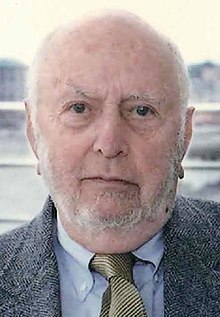Douglass North | |
|---|---|
 Douglass North in 1997 | |
| Born | November 5, 1920 Cambridge, Massachusetts, U.S. |
| Died | November 23, 2015 (aged 95) Benzonia, Michigan, U.S. |
| Education | University of California, Berkeley B.A., Ph.D. |
| Academic career | |
| Field | Economic history |
| Institution | University of Washington Rice University Cambridge University Washington University in St. Louis Stanford University Hoover Institution US Merchant Marine Academy |
| School or tradition | New Institutional Economics |
| Influences | Melvin M. Knight |
| Awards | Nobel Memorial Prize in Economic Sciences (1993) |
| Information at IDEAS / RePEc | |
Douglass Cecil North (November 5, 1920 – November 23, 2015) was an American economist known for his work in economic history. Along with Robert Fogel, he received the Nobel Memorial Prize in Economic Sciences in 1993. In the words of the Nobel Committee, North and Fogel "renewed research in economic history by applying economic theory and quantitative methods in order to explain economic and institutional change."[1]
North was an influential figure in New Institutional Economics, which emphasizes the impact of institutions on economic behaviors and outcomes. North argued, "Institutions provide the incentive structure of an economy; as that structure evolves, it shapes the direction of economic change towards growth, stagnation, or decline."[2] Rational and wealth-maximizing individuals lack complete information and have difficulties monitoring and enforcing agreements. Institutions can provide information and reduce transaction costs, thus encouraging economic activity.
- ^ "Douglass C. North – Biography". Nobelprize.org. Nobel Media. 2014. Retrieved February 14, 2016.
- ^ North (1991).